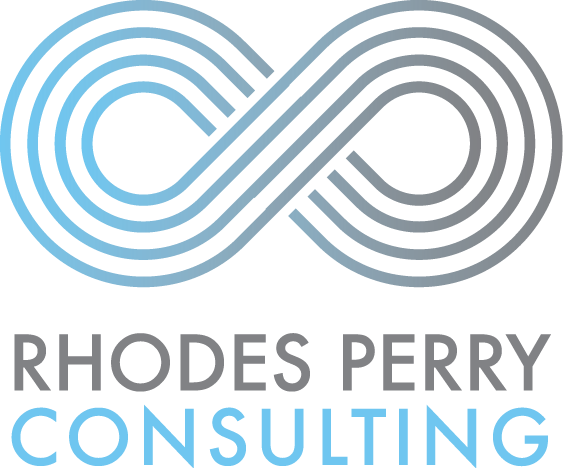Cultivating a Culture of Belonging
“Much of what human beings do is done in the service of belongingness.”
Fresh out of grad school, I worked with a wise career coach who encouraged me to answer three key questions for every job opportunity I pursued. These questions included: 1) can I do the job; 2) will I do the job; and, 3) do I fit in? For many of the job opportunities I considered, the first two questions were always a solid YES. Yet, being a transgender job applicant made the answer to the third question almost always a painful NO.
I began my career 20 years ago, and at the time many organizations I wanted to work for lacked the knowledge, skills, and motivation to create a culture where I knew I would fit in; a culture where I knew I could belong. As a result, I had to cover my gender identity to access gainful employment. Workplace covering occurs when an employee downplays or disassociates from one of their identities.
The pressure to cover core aspects of my identity, appearance, or association goes far beyond the experiences of transgender people like me. In fact, one study found that 75% of employees cover things like their faith or veteran status, altering their appearance (covering up tattoos, piercings, etc.), or associations (advocacy group participation, family composition, etc.). Clearly, the concept of covering is pervasive and negatively impacts individuals and organizations around the world.
While it’s understandable for employees to surrender some aspects of their personal expression to commit to the organization’s mission, sometimes a workplace’s culture demands employees to improperly cover important aspects of who they are. Workplaces that fail to define their culture as one that welcomes diversity, champions inclusion, and strives to cultivate a sense of belonging for its employees will experience a higher level of improper workplace covering.
Diversity & Inclusion Values, Goals, & Practices
To cultivate a culture of belonging, an organization should start by examining its values. Fortunately, a growing majority of workplaces in the United States center their values around diversity and inclusion (D&I) principles. Written value statements, strategic goals, and practices often reflect the D&I commitment of an organization. As more workplaces continue to articulate their D&I values, many still need to take the additional step of developing feedback mechanisms to assess how they are remaining accountable to their D&I values.
For example, if leaders fail to educate their workers on how to implement the organization’s stated D&I values, workers will feel the pressure to cover in order to adhere to the implicit standards and expectations of a workplace that doesn’t value their whole selves. Moreover, if workers experience discrimination or microaggressions because of their differences, and they can’t share feedback or get support because systems aren’t in place to do so, they will feel unwelcome, and may seek greener pastures.
The foundation for creating a culture of belonging starts by defining and remaining accountable to the organization’s D&I values. To bake stated D&I values into the DNA of an organization, leaders should consider hiring staff or an external subject matter expert to manage this work, offer voluntary training to develop ambassadors to communicate and implement these values, and increase employee engagement through diversity councils, mentorship programs and employee resource groups.
While these diversity and inclusion values are essential for the future of work, they are not enough. To stand out and attract millennial talent, your employees must have a feeling of belonging. From my own experiences as a transgender employee, written policies protecting me from discrimination weren’t enough. To know that I belonged, I needed my colleagues to understand what it meant to be a transgender employee, and how they could serve as an ally. I also needed to know that they valued my lived experiences, and capabilities to meaningfully contribute to the team’s innovation and success.
To truly create a culture of belonging, consider how your workplace culture may pressure certain employees to assimilate to implicit standards or expectations. Work with your HR team to analyze recruitment, hiring, promotion, and firing trends, and correlate these trends with demographic categories. Consider reviewing employee surveys and exit interviews. Did employees comment on the workplace culture and aspects of covering? Consider comparing your organization to other leaders in your industry to see how you fair.
After reviewing the research, determine if the organization’s stated values are helping employees bring their whole selves to work, or if they feel the pressure to cover at work. For example, if the organization values all employees no matter their sexual orientation or gender identity, review how many LGBTQ people felt the need to cover information about who they love, or who they are in order to advance professionally. If there is a disconnect, an organization can clearly identify the demands that need to be addressed and establish priorities.
Changing workplace culture is hard. Creating a workplace culture of belonging can seem even more daunting. To get support you need to implement your organization’s D&I ethos into everyday best practices, consider in the next RPC live webinar on Thursday, November 9, 2017 at 11 am Pacific/2 pm Eastern. The webinar will offer concrete strategies to help cultivate a workplace culture of belonging. Register for free by clicking here.
*********
Rhodes Perry, MPA, is an award winning social entrepreneur and a nationally recognized LGBTQ thought leader with nearly two decades of experience innovating solutions to complex LGBTQ diversity, equity, & inclusion challenges in large government, non-profit, and for-profit organizations. Rhodes is the founder and CEO of a global strategic management consultancy and the host of the podcast, The Out Entrepreneur, a weekly program offering mentorship to LGBTQ entrepreneurs, and those aspiring to take the entrepreneurial leap. More about Rhodes’ consultancy may be found at: www.rhodesperry.com.

